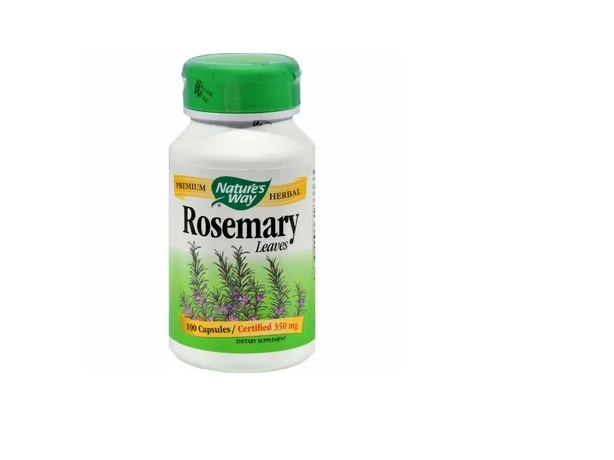Rosemary, scientifically known as Rosmarinus officinalis, is a fragrant and versatile herb that has been prized for its culinary and medicinal properties for centuries. Native to the Mediterranean region, rosemary is a member of the mint family and is renowned for its distinctive aroma and flavor. Beyond its culinary uses, rosemary also offers a wide array of potential health benefits, which have led to the development of rosemary supplements. In this comprehensive guide, we will explore the diverse benefits of rosemary supplements, including their historical uses, active constituents, and current scientific evidence supporting their efficacy.
Understanding Rosemary
Rosemary has a long history of use in various cultures, including ancient Greece, Rome, and Egypt, where it was revered for its medicinal properties and symbolic significance. The leaves of the rosemary plant are rich in bioactive compounds, including rosmarinic acid, carnosic acid, flavonoids, and essential oils, which contribute to its pharmacological effects. Rosemary has traditionally been used to improve digestion, enhance memory and cognitive function, alleviate pain, and promote overall well-being.
Cognitive Function and Mental Clarity
One of the most well-known benefits of rosemary supplements is their potential to enhance cognitive function and promote mental clarity. Rosemary contains compounds such as rosmarinic acid and carnosic acid, which have been shown to possess neuroprotective properties and enhance neurotransmitter activity in the brain. These compounds help protect neurons from oxidative damage, reduce neuroinflammation, and improve synaptic plasticity, thereby supporting cognitive function and memory. Additionally, the aroma of rosemary has been shown to have stimulating effects on the mind, promoting alertness, concentration, and mental focus.
Antioxidant and Anti-inflammatory Effects
Rosemary supplements are valued for their potent antioxidant and anti-inflammatory properties, which help protect cells from oxidative damage and reduce inflammation throughout the body. Rosmarinic acid, a key compound found in rosemary, acts as a powerful antioxidant, scavenging free radicals and neutralizing oxidative stress. Additionally, rosemary contains flavonoids such as diosmin and hesperidin, which have anti-inflammatory effects and help modulate immune function. By reducing oxidative stress and inflammation, rosemary supplements may help protect against chronic diseases such as heart disease, cancer, and neurodegenerative disorders.
Digestive Health and Gut Function
Rosemary supplements may support digestive health and improve gut function due to their carminative and antimicrobial properties. Rosemary contains essential oils such as cineole, camphor, and borneol, which help stimulate digestive enzymes, reduce gas and bloating, and alleviate symptoms of indigestion. Additionally, rosemary has antimicrobial effects that help inhibit the growth of harmful bacteria in the gut, promoting a healthy balance of intestinal flora. Regular consumption of rosemary supplements or tea may help improve digestion, relieve gastrointestinal discomfort, and support overall gut health.
Pain Relief and Muscle Relaxation
Rosemary supplements are valued for their analgesic and muscle-relaxing properties, which make them useful for relieving pain and tension throughout the body. Rosemary contains compounds such as camphor and borneol, which have mild analgesic effects and help alleviate muscle pain, headaches, and menstrual cramps. Additionally, rosemary essential oil can be applied topically to sore muscles and joints to reduce inflammation and promote relaxation. Whether taken orally or applied externally, rosemary supplements may help reduce pain, stiffness, and discomfort associated with various conditions.
Heart Health and Blood Circulation
Emerging research suggests that rosemary supplements may have beneficial effects on heart health and blood circulation. Rosemary contains compounds such as carnosic acid and caffeic acid, which have been shown to have cardioprotective effects, including reducing blood pressure, improving lipid profiles, and enhancing endothelial function. Additionally, rosemary supplements may help reduce oxidative stress and inflammation, which are implicated in the development of cardiovascular disease. Regular consumption of rosemary supplements may help support heart health, reduce cardiovascular risk factors, and promote overall vascular function.
Immune Support and Respiratory Health
Rosemary supplements may help strengthen the immune system and protect against respiratory infections. Rosemary contains compounds such as rosmarinic acid and flavonoids, which possess antimicrobial and immune-modulating properties. These compounds help stimulate immune cell activity, increase natural killer cell function, and promote immune system balance. Additionally, rosemary supplements may help alleviate symptoms of respiratory conditions such as asthma, bronchitis, and sinusitis due to their anti-inflammatory and expectorant effects. Rosemary tea or steam inhalation with rosemary essential oil may help relieve congestion, soothe inflamed airways, and promote respiratory health.
Dosage and Safety Considerations
Rosemary supplements are generally considered safe for most individuals when taken at recommended doses. However, it is essential to consult with a healthcare professional before starting any new supplement regimen, particularly if you have underlying medical conditions or are taking medications. Pregnant and breastfeeding women should use caution and consult with their healthcare provider before using rosemary supplements. While allergic reactions to rosemary are rare, individuals with a known allergy to other plants in the Lamiaceae family, such as mint or sage, should avoid rosemary supplements. Additionally, it is advisable to choose high-quality, organic rosemary supplements from reputable manufacturers to ensure product purity and potency.
Conclusion
In conclusion, rosemary supplements offer a range of potential health benefits, including cognitive enhancement, antioxidant and anti-inflammatory effects, digestive support, pain relief, heart health promotion, immune support, and respiratory health. While scientific research on rosemary’s efficacy is ongoing, its long history of traditional use and promising preliminary evidence suggest that it may serve as a valuable natural remedy for various health concerns. By incorporating rosemary supplements into your wellness routine, you can harness the therapeutic properties of this versatile herb to support your overall health and well-being.
- Sip & Chill: Exploring Melo’s THC Beverage Wonderland - May 17, 2024
- Benefits of Guaysa Supplements - April 1, 2024
- Benefits of Graviola Supplements - April 1, 2024

